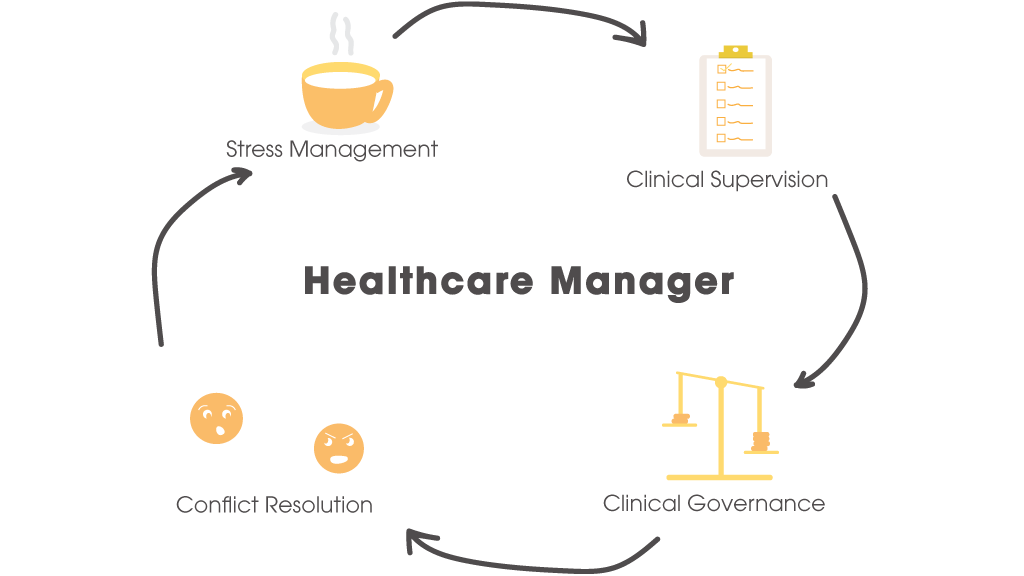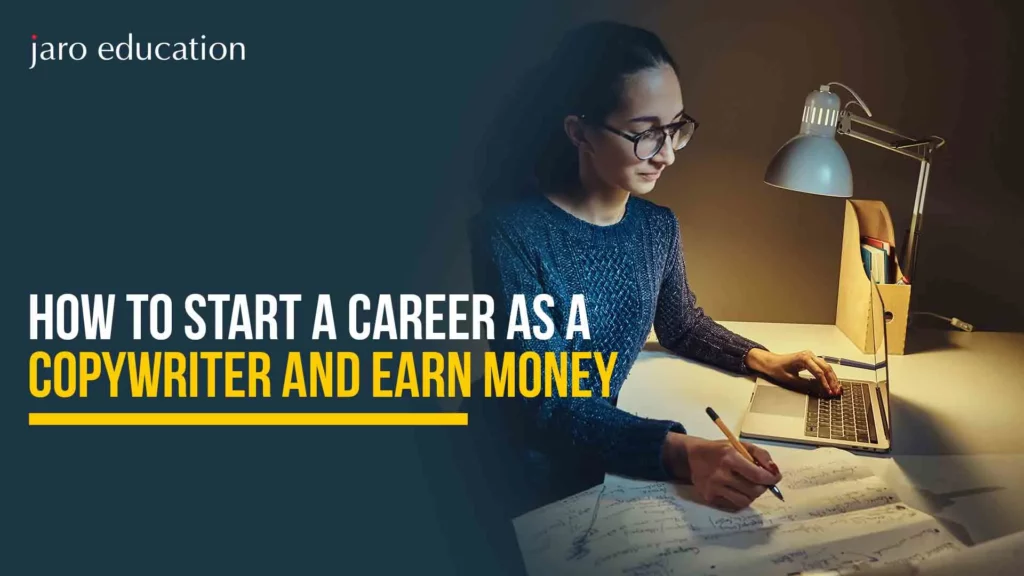Thriving Career in Healthcare Management: Your 2025 Guide
Table of Contents

Have you ever thought about what keeps a healthcare organisation running smoothly? While some of you must be considering doctors and nurses as the face of this industry, there are a lot of people behind the scenes who play an equal role in making this sector successful. We’re talking about professional managers, practice administrators, practice managers, and so on, who are committed to ensuring that all the medical facilities are available and the organisation operates effectively.
Welcome to the not hyped but yet fascinating world of healthcare management…
As we move into 2025 and beyond, the healthcare sector is becoming increasingly important. We’re facing challenges like an ageing population, and we also have advanced technology to help meet their needs. So, if you’re someone who enjoys solving problems, managing teams, and is ready to make a positive impact on people’s lives, we bet you a career in healthcare management could be a great fit.
There are many opportunities in the field, and they are fulfilling! In this blog, we will provide an overview of healthcare management, the many diverse healthcare career opportunities available, the education requirements needed, and a future you can build for yourself in this field. Stay tuned with us as we will be exploring careers that can truly shape your future.
Why a Career in Healthcare Management?
A healthcare career is not just a job; it is an opportunity to make a difference. Healthcare managers are key personnel who help ensure healthcare facilities provide quality care and are run well.
The job outlook for healthcare managers is very strong, with projected job growth of 28% from 2021 to 2031, which is significantly higher than the national average for all professions. Factors contributing to the demand for healthcare managers include the ageing population, the need for effective care coordination, and the growing complexity of healthcare regulations. Healthcare careers also provide some of the most competitive salaries.

*research.com
The annual healthcare management salary will differ based on education and experience, but the average salary is approximately ₹8,475,730. Along with the salary, you will have job satisfaction in knowing that you are working to improve population health and the quality of care in communities.
The Role of Healthcare Managers
Although healthcare managers do not typically receive recognition, they are extremely valuable. Healthcare managers ensure that hospitals, clinics, and other healthcare enterprises operate as intended and comply with laws and regulations.
Healthcare managers perform various roles, including managing budgets, overseeing personnel, implementing policies, and improving processes for patient care. Their contributions extend from the administration of hospitals and clinics to the communities in which they serve. Improving efficiency, effectiveness, and cultural transformation in healthcare organisations often leads to improved patient care and decreased costs.
Healthcare managers have an essential role in addressing current and anticipated challenges facing the healthcare sector today, including increasing costs, patient expectations in care, and the use of technology. In addition, healthcare managers facilitate communication across organisational departments to support coordinated care for patients. They provide ongoing training for specific healthcare management skills and a platform to understand the overall strategy of the organisation.
Managers and supervisors are given the tools and training to lead employees to ensure that employees are performing tasks effectively, thus, job performance and satisfaction increase. Healthcare managers have a holistic view of the organisation, and the process of employee management offers an opportunity to improve the quality of care for patients and improve the effectiveness and efficiency of the organisation’s services. Strong employee performance and employee satisfaction lead to a stronger healthcare organisation overall, and it prepares the organisation to face future challenges with resilience.

*ausmed.com
Exploring 12 Career Opportunities in Healthcare Management
If you’re considering a healthcare career, you’ll be pleased to know that there are numerous pathways to choose from. Here’s a look at some of the most prominent roles within this field:
1. Case Manager
Average Salary: ₹3,944,205 PA
Job Description: A healthcare career as a case manager is responsible for coordinating care for patients, ensuring that all patient needs are met continuously. They communicate with medical teams to establish treatment plans, monitor patient care, and initiate services as needed after treatment.
2. Human Resources Coordinator
Average Salary: ₹4,200,000 PA
Job Description: Human resources coordinators manage all organisational tasks, including employee scheduling, payroll, and benefits. They connect employees with management, help to fill positions, and mediate issues to ensure employees work effectively in a pleasant work environment.
3. Director of Social Services
Average Salary: ₹4,500,000 PA
Job Description: The director of social services, as a healthcare professional, identifies organisational needs and then creates programs to support ongoing individuals in care. They provide therapy services and connect with the community, often seeking funds, grants, or raising money for future programs.
4. Insurance Specialist
Average Salary: ₹4,190,000 PA
Job Description: Insurance specialists investigate and process insurance claims, reviewing patient records for accuracy. They maintain and record all medical claims, staying in frequent communication with healthcare providers to resolve billing issues.
5. Behavioural Health Manager
Annual Salary: ₹5,200,000 PA
Job Description: Behavioural health managers are responsible for coordinating care for patients with mental health issues. They work with doctors and therapists to assess the patient’s condition and to create a treatment plan.
6. Medical Records Supervisor
Annual Salary: ₹4,600,000 PA
Job Description: Medical records supervisors supervise the medical records department to ensure state standards are maintained and that ethical practices are being upheld. In this healthcare career, a professional is responsible for maintaining patient records and developing procedures for health information management.
7. Practice Manager
Annual Salary: ₹5,400,000 PA
Job Description: Practice managers are responsible for the day-to-day operations of a medical office. They manage billing, payroll, staff scheduling, and office events, all while communicating with medical vendors to ensure things run smoothly.
8. Rehabilitation Manager
Average Salary: ₹5,800,000 PA
Job Description: Rehabilitation managers supervise operations at rehabilitation facilities, provide employee training, and organise activities for clients. In this healthcare career, the manager runs therapy sessions and helps clients through the rehabilitation process.
9. Healthcare Manager
Average Salary: ₹5,900,000 PA
Job Description: Healthcare managers oversee medical services in hospitals or clinics. This healthcare career facilitates communication between departments, manages budgets, and maintains staff schedules to ensure the facility is functioning effectively.
10. Research Manager
Average Salary: ₹5,700,000 PA
Job Description: Research managers manage teams to conduct research projects for health care. They facilitate the development of methodology, track project progress, analyse data, and ensure that regulations are being followed for progressing healthcare knowledge.
11. Human Resources Manager
Average Salary: ₹6,500,000 PA
Job Description: An HR manager is responsible for developing HR strategies that support the company’s goals. They interact with employees to monitor that the workers are satisfied with their jobs and to gain their perspectives on management/organisational practices. Additionally, they have an integral role in recruitment and hiring to attract and keep talent.
12. Practice Administrator
Average Salary: ₹6,200,000 PA
Job Description: The practice administrator supervises administrative tasks and healthcare professionals in a clinical practice. In this healthcare career, a person is responsible for developing and managing the budget, which includes tracking expenses and, sometimes, performing financial duties like paying bills and ordering supplies. In addition, the practice administrator often hires additional administrative staff, such as secretaries, and is the main contact person for insurance and patient care services.
Educational Pathways to Healthcare Management
To enter the field of healthcare management, a relevant educational background is essential. Most positions require at least a bachelor’s degree, while many roles, particularly leadership positions, prefer candidates with a master’s degree in healthcare administration or a related field.
Bachelor’s Degree
A bachelor’s degree in healthcare management or a related field provides foundational knowledge in healthcare systems, finance, and ethics. It equips students with the skills needed to manage healthcare facilities and understand the complexities of the healthcare landscape.
Master’s Degree
An MBA with a concentration in healthcare management is highly regarded in the industry. This advanced degree not only deepens your understanding of healthcare policies and practices but also enhances your leadership and strategic thinking skills. You can get a high-paying MBA healthcare management salary not only in India but worldwide.
Certification Courses
In addition to formal degrees, obtaining certifications can boost your credentials. One of the most popular programmes is the Executive Programme in Healthcare Entrepreneurship and Management (EPHEM) offered by IIT Delhi.
This programme is mainly designed to cover the conception, design, prototyping, testing, customer discovery, sales and marketing, commercialisation, and management of innovative healthcare products and services. The development, design, testing, customer identification, sales and marketing, commercialisation, and management of new healthcare products and services will all be covered in this course.
Programme Highlights
- Certificate from prestigious CEP, IIT Delhi
- Top IITD faculty and industry experts
- Holistic curriculum covering concepts & applications
- Projects and Hands-on experience
- Rich peer group learning and networking
The Future of Healthcare Management
As we are already prepared for 2025 and beyond, the future of healthcare management looks promising. Several trends are shaping the landscape and bringing potential opportunities for prospective professionals.
- Technological Advances: The use of technology in healthcare is changing how we deliver care. From telemedicine to EHRS, healthcare managers must find ways to effectively utilise them to improve patient care and operational efficiency. Leaders of the future will need to monitor what is on the horizon when it comes to technology.
- Value-Based Care: There is an increasing focus on value-based care. This shift emphasises patient outcomes, rather than the amount of services delivered. Healthcare managers will serve a critical role in the implementation of strategies regarding quality care, as facilities must start to meet the expectations of patients and healthcare funding sources.
- Workforce Management: The healthcare workforce is also changing. Healthcare managers must develop strategies for team collaboration and employee engagement as remote work and flexible schedules remain prevalent. Managers will need to create a work environment that is supportive and engaging to attract and retain top talent.
- Sustainable Practices: Sustainability is becoming increasingly important in healthcare. Managers will be expected to implement practices that promote environmental responsibility while also ensuring the long-term viability of healthcare systems. This includes reducing waste, optimising resource use, and promoting wellness initiatives.
Build a Thriving Healthcare Career with Jaro Education
As we’ve mentioned, the healthcare management sector is filled with endless career opportunities, not just in India but around the globe. If you want to excel in this field and build a successful career, trust Jaro Education.
We are an online higher education and upskilling company dedicated to providing academic guidance and career counselling to every participant who enrolls with us. We offer online courses in collaboration with India’s top institutions and universities in management, technology, non-technology fields, and marketing.
If you’re looking to prepare for a career in healthcare management, consider enrolling in our Executive Programme in Healthcare Entrepreneurship and Management (EPHEM) offered by IIT Delhi. This 5-month course is designed to help you prepare for transitional entrepreneurship roles in the healthcare sector. Let’s take the next step together toward your thriving career in healthcare!
Final Thoughts
In a nutshell, healthcare career management provides the opportunity to improve people’s lives, all while pursuing a meaningful and stable profession. With high job growth projections, competitive salaries, and a chance to work in a fast-paced and constantly changing industry, now may be the best time to explore a career in this field.
Whether you are just beginning your education or ready to advance your career, healthcare management is full of opportunities. As you develop your skills, pursue the right education, and keep up with trends in the industry, you will be setting yourself up for success in an exciting and impactful healthcare career!
Frequently Asked Questions
What educational qualifications are necessary to begin a career in healthcare management?
To start a healthcare career, a bachelor’s degree in health administration or a related field is usually required. Additionally, obtaining an MBA in Healthcare Management can significantly enhance your career opportunities and earning potential.
What skills are vital for success in healthcare management?
Successful healthcare managers should possess skills such as patient-centred care, knowledge of healthcare systems, cultural competency, ethical decision-making, and the ability to manage stress and fatigue. Mentoring and quality improvement are also important. Furthermore, general skills like leadership, adaptability, effective communication, and digital literacy are essential.
What is the average salary for healthcare managers?
The median annual healthcare management salary is approximately ₹8,475,930. Salaries can vary based on factors such as education, experience, and geographic location.
Can I secure a healthcare management position with only a certificate?
Yes, it is possible to obtain entry-level healthcare management positions with just a certificate. However, for higher-level roles and more competitive salaries, a bachelor’s or master’s degree in healthcare administration is typically preferred.
















